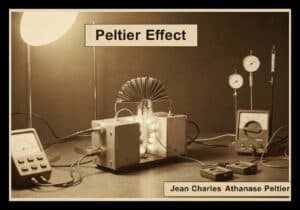
Photonic computing leverages light-based components to perform computation with high speed and low energy consumption. Silicon photonics enables integration of optical modulators, detectors, and waveguides on a single chip. Optical interconnects reduce latency and bandwidth bottlenecks in data transfer. Nonlinear optics and photonic crystal waveguides facilitate all-optical switching and signal processing. Photonic neural networks and tensor cores accelerate machine learning workloads. Quantum dot lasers and integrated laser sources provide coherent light for computation. Optical logic gates and resonators implement fundamental processing units. Wavelength division multiplexing enhances parallelism in data channels. Advances in photonic device fabrication support scalable architectures for future computing systems.
This is our latest selection of worldwide publications and patents in english on Photonic Computing, between many scientific online journals, classified and focused on photonic computing, photonic integrated circuit, optical interconnect, silicon photonic, optical modulator, photonic neural network, quantum dot laser, nonlinear optic, photonic crystal waveguides, optical signal processing, wavelength division multiplexing, optical logic gate, plasmonic device, photodetector, optical amplifier, coherent optical computing, all-optical switching, photonic memory, optical resonator, frequency comb, optical frequency conversion, photonic tensor core, optical computing architecture, photonic quantum computing, integrated laser source, optical phase shifter, photonic analog computing, optical data storage, photonic signal routing, ultrafast optics, photonic device fabrication and photonic comput.
Dielectric Function and Bandgap Energies
Published on 2025-10-16 by Manuel Ballester, Almudena P. Marquez, Eduardo Blanco, Jose M. Manuel, Maria I. Rodriguez-Tapiador, Susana M. Fernandez, Florian Willomitzer, Aggelos K. Katsaggelos, Emilio Marquez @MDPI
Abstract: Copper nitride (Cu3N) is gaining attention as an eco-friendly thin-film semiconductor in a myriad of applications, including storage devices, microelectronic components, photodetectors, and photovoltaic cells. This work presents a detailed optoelectronic study of Cu3N thin films grown by reactive RF-magnetron sputtering under pure N2. An overview of the state-of-the-art literature on this material and its potential applications is also provided. The studied films consist of Cu3N polycrystals wit[...]
Our summary: This study investigates the optoelectronic properties of Cu3N thin films, focusing on their dielectric function and bandgap energies. The films were grown using reactive RF-magnetron sputtering and characterized through various optical measurements. Results indicate potential applications in photovoltaic devices due to suitable bandgap energies.
Dielectric Function, Bandgap Energies, Copper Nitride, Optoelectronic Properties
Publication
Design and Optimization of a Hybrid Design for Quantum Transduction
Published on 2025-10-15 by Enrico Bargagna, Julian Delgado, Changqing Wang, Ivan Gonin, Vyacheslav P. Yakovlev, Paolo Neri, Donato Passarelli, Silvia Zorzetti @MDPI
Abstract: This study presents the mechanical design and analysis of a quantum electro-optical transducer engineered to operate at millikelvin temperatures within a dilution refrigerator. The transducer enables bidirectional microwave-optical frequency conversion through a hybrid architecture that integrates a superconducting radiofrequency (SRF) cavity with an electro-optic optical cavity. Among several design options investigated, the configuration offering the best thermal and mechanical performance was[...]
Our summary: This study presents the design of a quantum electro-optical transducer for millikelvin temperatures. The hybrid architecture integrates a superconducting cavity with an optical cavity for efficient microwave-optical conversion. Enhanced thermal performance and mechanical stability were achieved, enabling higher laser pump powers and improved conversion efficiency.
Quantum Transduction, Electro-Optical Transducer, Superconducting Cavity, Thermal Performance
Publication
Efficient Tuning of the Third-Order Nonlinear Optical Properties of Some Functionalized Boron-Dipyrromethene Dyes
Published on 2025-10-11 by Ioannis Orfanos, Panagiotis Aloukos, Antonia Kaloudi-Chantzea, George Pistolis, Stelios Couris @MDPI
Abstract: In the present work, the third-order nonlinear optical (NLO) response of some recently synthesized, functionally substituted Boron–Dipyrromethene (BODIPY) derivatives is studied, and their nonlinear optical properties are investigated using the Z-scan technique, employing 4 ns, visible (532 nm) and near-infrared (1064 nm) laser excitation. The present findings demonstrate the importance of functionalization of the BODIPY core and the versatility it offers for the modification of th[...]
Our summary: This study investigates the third-order nonlinear optical response of functionalized Boron-Dipyrromethene dyes. The Z-scan technique is used with visible and near-infrared laser excitation. Results highlight the significance of functionalization for tuning the nonlinear absorption and refraction properties, indicating potential optoelectronic applications.
Nonlinear optics, BODIPY, Z-scan technique, functionalization
Publication
Unveiling the Role of Fluorination in Suppressing Dark Current and Enhancing Photocurrent to Enable Thick-Film Near-Infrared Organic Photodetectors
Published on 2025-10-01 by Yongqi Bai, Seon Lee Kwak, Jong-Woon Ha, Do-Hoon Hwang @MDPI
Abstract: Thick active layers are crucial for scalable production of organic photodetectors (OPDs). However, most OPDs with active layers thicker than 200 nm typically exhibit decreased photocurrents and responsivities due to exciton diffusion and prolonged charge transport pathways. To address these limitations, we designed and synthesized PFBDT-8ttTPD, a fluorinated polymer donor. The strategic incorporation of fluorine effectively enhanced the charge carrier mobility, enabling more efficient charge tra[...]
Our summary: The study focuses on the role of fluorination in enhancing charge carrier mobility in thick-film organic photodetectors. The synthesized PFBDT-8ttTPD polymer significantly reduces dark current density while improving photocurrent and responsivity. This advancement supports the scalable production of high-quality, defect-free thick films for robust near-infrared photodetection.
Fluorination, Organic Photodetectors, Charge Mobility, Dark Current
Publication
Advances in Silicon-Based UV Light Detection
Published on 2025-09-30 by Arif Kamal, Seongin Hong, Heongkyu Ju @MDPI
Abstract: Silicon (Si), the cornerstone semiconductor in the micro-electronics industry, can provide a cost-efficient platform with mature technologies for photodetection in visible and near-infrared regions. However, its intrinsic properties, such as a narrow bandgap and the shallow penetration depth of ultraviolet (UV) light into its surface with surface trap states, remain challenges, rendering it unsuitable for effective UV light detection. Various techniques have been reported to circumvent these sur[...]
Our summary: This review discusses the challenges of using silicon for UV light detection due to its narrow bandgap and surface defects. It explores techniques to improve UV detection by combining silicon with wide-bandgap semiconductors. The paper categorizes UV photodetectors and presents future directions for developing advanced silicon-based UV light detectors.
Silicon, UV light detection, wide-bandgap semiconductors, photodetectors
Publication
Robust and Compact Electrostatic Comb Drive Arrays for High-Performance Monolithic Silicon Photonics
Published on 2025-09-28 by Mohammadreza Fasihanifard, Muthukumaran Packirisamy @MDPI
Abstract: Actuating monolithic photonic components (particularly slab waveguides) requires higher force due to their inherent stiffness. However, two primary constraints must be addressed: actuator footprint and fabrication limits. Increasing the number of fingers to provide the required force is not a viable solution due to space constraints, and we must also adhere to the process design kits of standard fabrications and respect their design limits. Therefore, it is crucial to increase the actuator force[...]
Our summary: This study presents optimized electrostatic comb drive arrays for monolithic silicon photonics, focusing on maximizing actuator force without increasing footprint. The design incorporates advanced finger geometry and arrangement to enhance force output while maintaining travel range. Validation through modeling and experimentation demonstrates robust performance, suitable for optical microsystems applications.
Electrostatic Comb Drives, Monolithic Silicon Photonics, Actuator Optimization, Force Intensity
Publication
Polarization-diversity optical power supply
Patent published on the 2025-09-18 in US under Ref US2025293785 by NUBIS COMMUNICATIONS INC [US] (Winzer Peter Johannes [us])
Abstract: An apparatus includes an optical power supply including: a power supply light source configured to generate power supply light; at least one optical input/output port; at least one photodetector; and a coupling module. The coupling module is configured to receive the power supply light from the power supply light source and output the power supply light through the optical input/output port, receive reflected light through the optical input/output port, and transmit the reflected light to the ph[...]
Our summary: The apparatus features an optical power supply with a light source, input/output port, and photodetector. The coupling module manages power supply light and reflected light. A controller adjusts the power supply light based on the reflected light levels detected.
Optical power supply, Photodetector, Coupling module, Polarization-diversity
Patent
Depth pixel with switchable integration capability
Patent published on the 2025-09-18 in US under Ref US2025294269 by COMMISSARIAT A LENERGIE ATOMIQUE ET AUX ENERGIES ALTERNATIVES [FR] (Ayel FranÇois [fr])
Abstract: An image acquisition device provided with a set of depth pixels, each depth pixel comprising a read circuit associated with a photodetector (PD), the read circuit having a switching circuit configured to:adopt a first configuration so as to couple a first electrode (101a) of an integration capacitor (Ca) with a first read node (NL1) and a second electrode (102a) of the integration capacitor (Ca) with a detection node (ND), then,adopt a second configuration so as to couple the first electrode (10[...]
Our summary: The device features depth pixels with a read circuit linked to a photodetector. It includes a switching circuit that can change configurations for integration. This allows for flexible coupling of electrodes with read and detection nodes.
depth pixel, image acquisition, photodetector, switching circuit
Patent


























